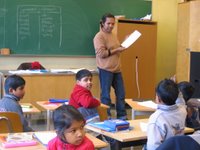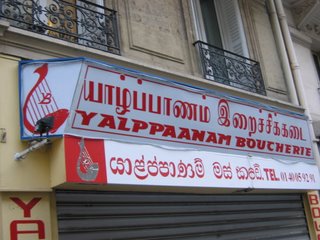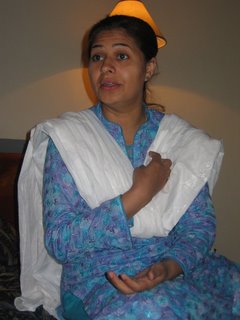 Tamil Diaspora and Tamil language
Tamil Diaspora and Tamil languageBy Dushiyanthini Kanagasabapathipillai in Norway and Denmark
The language makes a difference.
If we can't understand a language, which can lead to misunderstanding.
People who are living in Scandinavian countries have to learn the language of the respective country, where they are living.

The Sri Lankan Tamils are no exception.
There are seven thousand Sri Lankan Tamils currently living in Norway.
Most of them left Sri Lanka after 1983, black July riots.
As they have landed in Norway, first they faced a cultural shock in freezing cold.
Nevertheless they all had to learn the Norwegian language in order to secure employment.
As Tamils are known for hard working, they found jobs in various fields.
They had to find their life partners, as they grew older.
The young Tamil men wanted to marry girls from their home town Jaffna.
Their parents went ahead with the match making, found cultured girls from Jaffna for their sons.
The brides to be were sent to Norway to tie the knot.
They took “Koorai Saree, Thaalikodi- which was made in Sri Lanka according to the tradition, with other jewelleries.
The wedding took place in Norway with the blessings of the parents in Jaffna.
Their children were taught in Norwegian.
Norwegians say that, “A child should learn his or her mother tongue first. Then it is easier for the child to learn the other languages”.
The Norwegian Tamils are teaching Tamil to their children.
There are a few weekend schools, which teach Tamil, Karnatic Music and Bharatha Natyam.
Children can take Tamil as a subject at grade ten.
There were not enough Tamil newspapers or magazines available in Norway, for the Sri Lankan Tamils, who migrated there.
They thought it was necessary to start Tamil schools, and make the place available with
reading materials in Tamil.
The first Tamil school “Muththamil Arivaalayam” was started in 1988, in a Church
premises in Tøyen.
It caught fire and destroyed completely including 3,000 Tamil magazines and other
reading materials.
The school was relocated in a different place.
“Muththamil Arivaalayam” has about three hundred and forty children. They are three
year to sixteen year old. It is a recognized school among the Tamil community. The children are enthusiastic to learn Tamil language. We celebrate “Sarasvathi pooja”, Christmas, and annual day. We have annual sports meet as well” says the Principal K. Sivananthan.
The children come here on every Saturday to learn Tamil and extra curricular activities.
Parents of the children work on voluntary basis.
The teachers are trained according to the curriculum.
“Although we are living in a foreign country, we can’t forget our culture and tradition.
We have to teach our children all good values and especially the mother tongue. We
speak to our children in Tamil at home. They speak Tamil fluently” says Sellathurai Selvakumaran.
The children take extra interest to learn the Tamil language and practice it.
"I like to learn Tamil. It is my favourite language" says five year old Mary Krisha Christopher Jude, who was born in Norway.
There are eleven thousand and eight hundred Sri Lankan Tamils living in Denmark, and
twenty eight Tamil schools in functioning there.
The Danish Tamil children learn the Tamil language too.
“It is very important to teach Tamil, which is their mother tongue, though they are living
in Denmark. When a child speaks his or her mother tongue, it counts. All the Tamil
parents are interested in teaching their children Tamil and its tradition. And it makes
them to understand and mingle with their grand parents, who can’t communicate in any
other language, except Tamil” says Jeyarajah Rasiah, who is a member of the city council
in Denmark.
Sri Lankan Tamils are recognized and respected for their hard working.
Some Danes mentioned that, the “Sri Lankan Tamils are doing very well, especially the
younger generation in education, and they
do not make much noise. They do not get involved in crimes, unlike other ethnic
communities, which migrated from various parts of the world. The Danish Sri Lankan
children are well behaved.”
And every single parent is concerned that, their children speak Tamil correctly.
It was surprising to see the children speak the very fluently, like Norwegian or Danish.
“It is not necessary to learn Tamil. Because they are not living in Sri Lanka. There is no
use. And most probably, they are not going to come back and live in Sri Lanka” says
Sri Lankan journalist and practicing lawyer Saman Kaluarachchi.
It is encouraging to see the Tamils, living miles away from home maintain the culture and tradition, and want to treasure it for the next generation.



